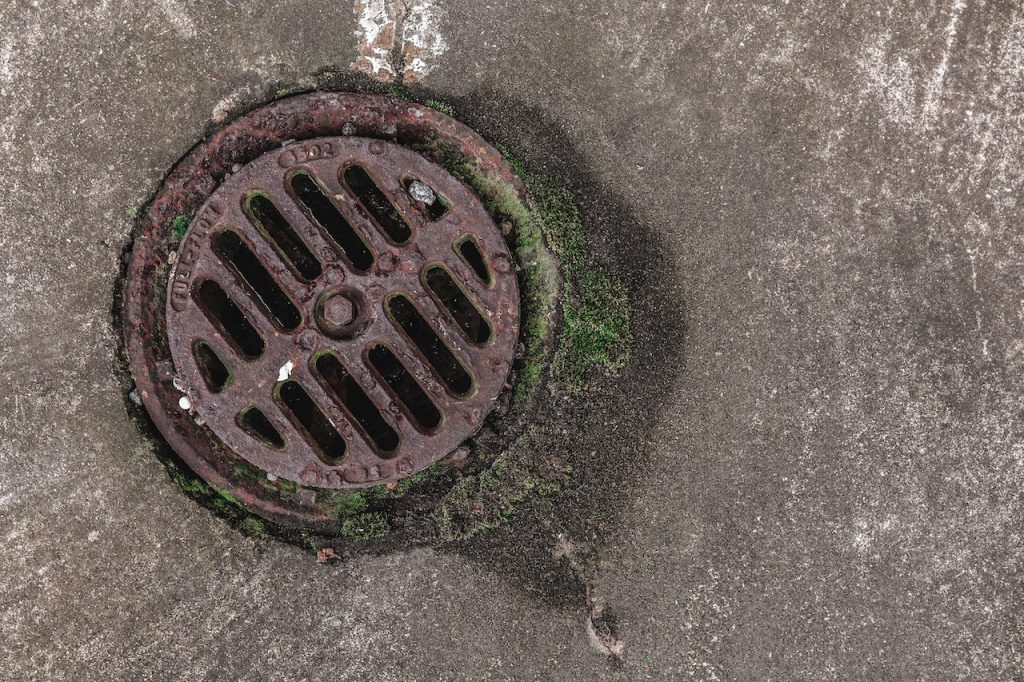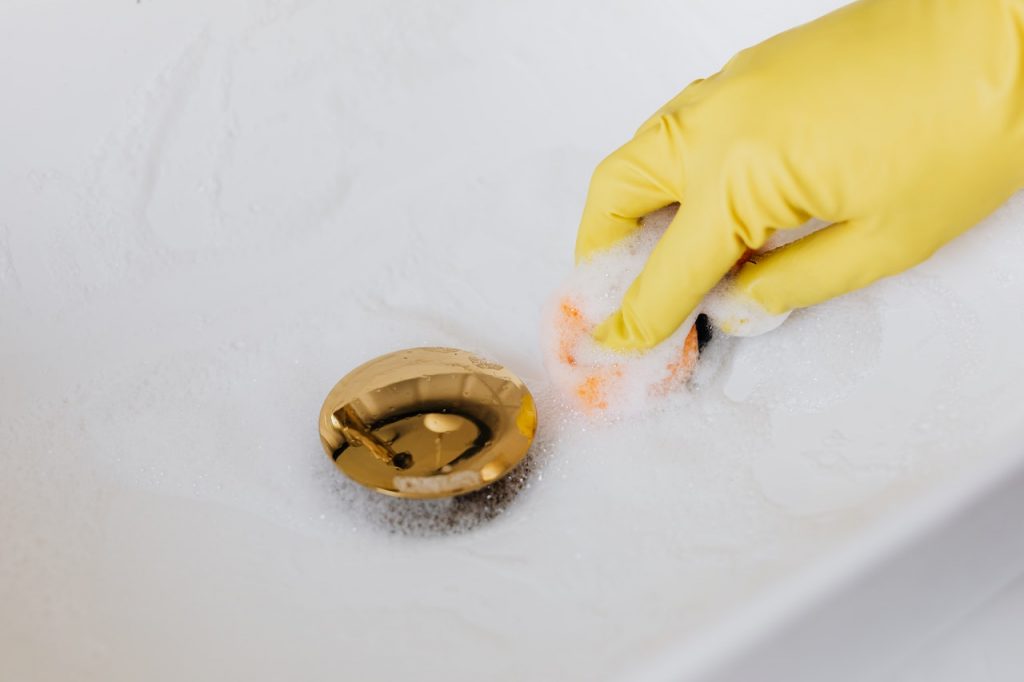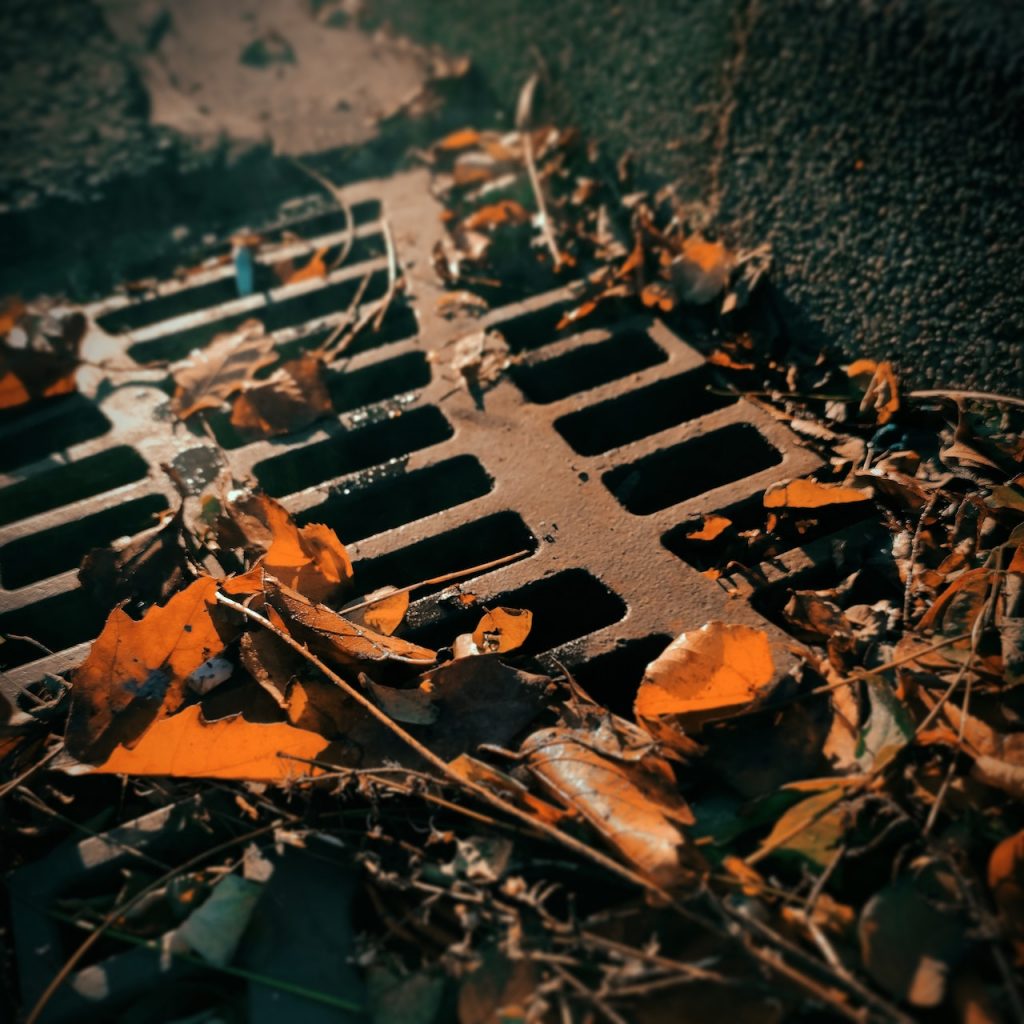Do your drains outside get blocked or not clean? Blocked drains are inconvenient. They cause trash backlogs and often produce unpleasant odors. Typically, clogs occur in your home’s thinner pipes, such as sinks and toilets. However, material may accumulate inside outdoor drains, causing them to get blocked.
If you notice a strange odor outside your house or your sink takes forever to drain, you may have a plugged drain. But don’t panic; nine times out of ten, you’ll be able to unblock yourself and won’t need to contact for assistance. You may considerably lessen the likelihood of dealing with a clogged drain by including the following techniques in your regular cleaning activities. This article will help you get through it. Keep reading to learn the ways to clean your drains outside.
Cleaning and Unclog Outside Drains

Many houses have outside drain systems located somewhere on their land. Any exterior drain and/or system’s purpose is to prevent rainfall and melt snow from flooding the yard, residence, or outside property. If there is a driveway, there may be a drain to prevent the driveway surface from overflowing during a storm or due to runoff precipitation.
Cleaning and clearing these outside drains of dirt and other items is an essential residential and commercial maintenance task that all homeowners should understand how to do. The next post will explain how to safely and properly clean & unclog outside drain lines.
?Assess Each Drain
The first step in removing a clog from an outside drain pipe and other drainage systems is to inspect each exterior property drain for visible indicators of objects that often block these drains. Bring a flashlight to help you see dark subterranean holes or pipelines.
These are a few Evident Items Which Regularly Plug up Outside the Drainage system:
?Grass and other plants or weeds growing around drain openings and exits
?Covering your Drainage Holes with Dirt or Mud
?Debris such as twigs, leaves, and rocks that may have been washed and blown away by storm rains or winds
?Paper, disposable cups, plastic, and other items are examples of trash or litter.
?Toys for children, teen sports equipment, or outdoor supplies.
?Safe Ways to Remove the Drainage Debris
The homeowner should carefully remove any materials or debris found covering the entry or exit drain pipe holes. It is better to remove this material using your hands or a scoop-shaped instrument or container to avoid pushing it farther down the drain. A screen and grate cover protects many outside drain pipes and other systems.
The drainage water that runs through the screens may readily clog these screens with silt, mud, and other debris. To better see the darkish drain tunnel, the property owner should gently remove these screens and grate covers and thoroughly clean them with water or a pressure hose.
Reach into the drain pipe and system opening with your flashlight to gently remove all debris that is visible or felt directly at the entry. Take care not to damage your drain pipe in the process. These pipelines may become compromised or destroyed over time. This is particularly true if the pipes are made of plastic or easily broken material.
?Flush Out Clogged Outside Drains
After removing a drain cover screen and any visible dirt and debris, the property owner should use a garden hose to thoroughly flush the system. This is often all that is required to unclog an exterior drainage system. On the grounds of many homes, there will be one or more inspection gateways and/or drainage portals. These are often found near the home, and there could be another closer to the street or near the bigger storm sewer drain holes frequently found under roadways.
The homeowner should check whether the water comes from these distant portals while washing clean water from a garden hose via the drain pipes. This assists in determining whether the blockage is within the underground tube, drain, or farther away. If water is not visible flowing from these inspection portals into sewer drains and other property drainage areas, a more significant problem may be causing the obstruction.
?Inspecting and Clearing Outside Drains
If you are unclear about the location of your property’s drainage pipes and neighborhood storm sewer drains, you should call your local water and sewage utility. Property owners might attempt to clear a blocked outside drainage pipe by utilizing a hydro-jet and drain snake to properly remove stubborn built-up debris and other blockage reasons.
A hydro-jet drain snake or hose is a plumbing tool that employs high-pressure water jets to properly empty drainage pipelines and systems. These are often available for rent at a local hardware shop. This high-pressure water jet allows the water to spray backward, dislodging difficult-to-dislodge blockage debris from the drain pipe. If this method fails, it may suggest that the blockage is caused by tree roots or another major issue, such as a damaged drainage pipe.
What You’ll Need to Cleaning Outside Drain

You should have the following materials on hand to keep your drains free of any blockages:
?Eye protection glasses
?Gloves made of rubber (elbow length if possible)
?Baking powder (or bicarbonate of soda)
?Crystals of soda
?Distilled white vinegar
?A tea kettle
?A container for storing fats
☑️Prepare Yourself
It’s usually a good idea to be prepared while cleaning with chemicals or germs. Rubber gloves will protect your hand and simplify picking up clumps of hair or other disgusting items. Protective eyewear is also required to keep chemicals like bleach or bacteria-infested water out of your eyes.
☑️Drains Are Not All Equal
Some house drains, such as your bathroom shower, sink, and bathtub, may need more regular examination than others. These are spots in your house where shaving and washing hair may build, especially when paired with soap scum, grease, and toothpaste.
Most drains get clogged owing to a mix of soap scum, debris, and hair; however, some unexpected things have caused clogged drains & emergency drain cleaning tasks throughout the years. Here are a few unique reasons for clogged drains.
☑️Use Boiling Water
Boiling water is a simple but efficient natural drain cleaner that reduces your pipes’ fat, grease, and oil accumulation. Keep an eye out for tripping hazards while taking a pot of boiling water upstairs to the restroom.
☑️Drain with Vinegar and Baking Soda
Baking soda & white vinegar may be used instead of a biological cleanser if desired. You may also use bicarbonates of soda for the baking powder. Hope that you already have both of these goods in the cabinet of your kitchen.
Simply put a couple of teaspoons of baking soda into a cup of white vinegar and pour that mixture down the drain. Allow the mixture to bubble for approximately five minutes before flushing the drain with hot water straight from the kettle.
☑️Drains with Biological Cleaner
The finest drain cleaner for hair and an effective technique to cure a buildup of lipids, bacteria, mould, and other organic pollutants is a biological cleaner, including enzymes. They are also much less harmful to the environment than harsh chemicals such as bleach and caustic soda. Most DIY stores sell an enzymatic drain cleaner at a reasonable price. When using the item on your drains, always follow the directions on the back of the package.
☑️Make Use of Water Jetting
Water jetting is an additional alternative to explore when everything else fails to unclog the drain. High-pressure water jetting has been utilized for more than 150 years, beginning in the mining sector. Similar procedures like those used for stone cutting are also employed to drive huge things down drains. However, despite its effectiveness, it is inappropriate for all drain clogs.
There is a narrow line between unblocking your drain and causing harm, which requires expertise and experience. More information on the five major advantages of hydro-jet cleaning the drains and sewage systems can be found here. As a result, it’s critical to use the proper equipment at the optimum pressure to avoid damaging the pipes. Furthermore, since this treatment involves a great deal of skill and ability, you should utilize a specialist.
As a result, water jetting should only be used as a last option, especially for smaller drains and minor clogs. Water jetting may be your only choice if the wire coat hanger & drain snake do not work.
☑️Put the Fats in a Container
Because prevention is the best medicine, ensure that any surplus fat from the cooking ends in containers rather than down the drain. The collection of congealed oil by deep fat fryers, coupled with other materials such as food & plastics, is one of the most prevalent reasons for clogged kitchen drains.
☑️Use Soda Crystals to Clear Drains
Another fantastic approach to keep fats, oils, and grease from clogging your drains is to use soda crystals. Simply place a cup of soda crystals in a dish of boiling water and gently swirl until the soda crystals dissolve. Pour the mixture carefully down your drains.
☑️Brush your Hair before Taking a Bath
Brushing your hair before taking a bath or shower can assist in removing the bulk of loose hairs before they fall into the plughole and possibly block the drain.
☑️Wash Pets Outside
If you bathe your dogs, remember that they lose far more hair than humans, particularly during molting seasons. Wash your cat, dog, or rabbit outdoors if feasible, or cover the drain in your bath with a towel to catch any hairs lost while washing.
?When in doubt, never flush the following items down the toilet.
?Plastic
?Ashes and cigarettes
?Food
?Sanitary items
?Regular paper and kitchen roll
?Packaging in cardboard
?Acid and other harsh substances
In most circumstances, the suggestions on this list should be sufficient to keep your drains working smoothly. If you need assistance keeping your drains clean or unblocked, a local friendly plumber is just a call away.
How to Unclog an Outside Drain on Your Own
If your exterior drain continues to clog, you may take action yourself if you have the tools and equipment listed above, including the necessary safety equipment. Remember that cleaning an exterior drain without the assistance of a professional is only feasible if the drain is not very blocked or the work is not too hard.
To clear your pipes of clogged garbage, follow the instructions below:
Remove any obstructions – Doing the obvious and basic things first may be all required to unblock a clogged drain outside your property. Put on your long-sleeved gloves, goggles, and face mask, then collect whatever material you can readily reach, like leaves, soap scum, or food waste, in a bucket or bin bag.
Clear the clog with your rods – If cleaning the drain by hand fails, it’s time to use the rods. Begin with one and insert it gently down the drain into the pipe below. If you encounter resistance, twist a rod into the obstruction with sufficient force until you break through. Can’t seem to feel it? Connect additional rods until you reach the obstruction.
Clean up the debris – You don’t want to do all that filthy work just to have to do it again in a few days, so tidy up any removed material and take advantage of the chance to clear out anything near that might create another blockage. Put it back in your buckets or rubbish bag.
How to Keep Your Outside Drain Clean

?️Clean your Drains Once a Week
Remove the pop-up stopper from your bathroom sink, clean the outside drain, & rinse the stopper once reinserting it. Remove your drain stopper from your bathroom or tub drain and clean it with a bent wire or a hair-catching brush.
?️Clean The Tub Drain Every Month
Remove the overflowing plate and elevate the pop-up assembly to access the spring or rocker arm. Remove any hair or dirt and thoroughly rinse its pop-up assembly before reinstalling it.
?️Flush Your Drains Weekly
Fill your tub using hot water before draining it. After each shower, pour hot water down a shower drain.
?️Use Bacterial Cleaner Once a Month
Bacterial drain cleaners, unlike chemical drain cleaners, are biodegradable & non-corrosive, so they will not harm your pipes. Preventing sinks, tubs, & showers from clogged before they happen is the most effective approach to keeping drains free all year. All that is required is frequent cleaning and upkeep.
Benefits of Drain Cleaning
?Drainage is faster and more efficient.
The first and most obvious advantage of cleaning your drain is that it will discharge faster than previously. Water will not “stand” in the drain and will slowly gurgle through the pipe. A clean kitchen drain and other water faucets are less prone to overflow or accumulate standing water. This is especially essential in toilet drains since keeping these lines free helps to avoid backflow.
?Elimination of Odors
While you may connect bad scents with your toilet, failing to clean any drain may cause mold and germs to build up, resulting in unpleasant odors in your house. Remember that mold spores thrive in a dark, damp environment, and the insides of your home’s drains contain enough of both. Do not depend on the normal flow of water to wash away these spores since this may not be sufficient.
A thorough drain cleaning may kill or wash away mold spores, preventing germs from growing. A clean drain, particularly a clean bathroom drain, prevents fetid mold from spreading and flourishing.
?Increase Drain Life and Prevent Leaks
The accumulation of chemical deposits within your drain pipes might cause them to deteriorate. You can prevent any leaks from happening in the first place by having your pipes cleaned regularly. This extends the life of your current pipe, saving you the price of gutting your property and replacing all its existing drain pipes.
?Preventing Property Damage
Remember why chemical deposits may cause pipe corrosion in your home? Or how a toilet might cause backflow if its drain becomes clogged? Damage to your property may occur as a consequence of these spills, a terrible side effect of these scenarios. Water damage from such a clean water pipe seems bad enough; however, the damage caused by a leak in a wastewater drain is considerably worse since this water is pre-loaded with hazardous chemicals and germs.
This contaminated water may discolor any flooring and walls it touches, which can be quite expensive to repair and replace. The advantages of a sewer cleanup and clear drain include the prevention of this sort of harm.
?Prevent Clog Formation
The most apparent advantage of cleaning your drains regularly is that it prevents obstructions from occurring. This means you won’t have to deal with clogged sinks and toilet backflow.
Frequently Asked Questions
How can I unclog an outdoor drain pipe?
To unclog a drain line, you must first examine the obstruction. Is it on the ground or in the pipe? If it’s deep inside the drainpipe, you may attempt to unclog it using drain rods, attaching as many as necessary to reach the debris. If the rods don’t work, it’s time to bring in a professional with drain-clearing equipment.
Who is in charge of your property’s drains?
The homeowner is responsible for all inside drains on their property and their near exterior kitchen drain. If it’s an external/shared drain, call your local water/sewerage provider to find out who’s responsible for it.
Who is to blame for clogged road drains?
Road drains, particularly those on rural roads, are the responsibility of your local government or council. As a homeowner, you are normally responsible for drains up to the border of your yard or driveway.
How should an exterior drain be cleaned?
Using hot water is the simplest technique to unclog your blocked exterior drain. Simply bring a pot of tap water to a boil. Pour hot, boiling water down the drain gently. This allows you to cleanse and melt away any hard obstructions.
How do experts clear drains?
A skilled plumber will clear your drains utilizing a motorized drain auger (also known as a drain snake) to remove practically any size blockage inside a drainpipe for an uncomplicated unclogging procedure. Drain cleaning typically begins with a drain auger to eliminate simple drain issues.
Final Thoughts
Keeping your outside drains clean is important for avoiding unpleasant odors. Furthermore, clean drains help to prevent your property from overflowing, air pollution, and even property damage. As a result, it’s essential to clean your outdoor drain on a frequent and comprehensive basis. You can maintain your drains in excellent shape for years to come by following the methods indicated above.

